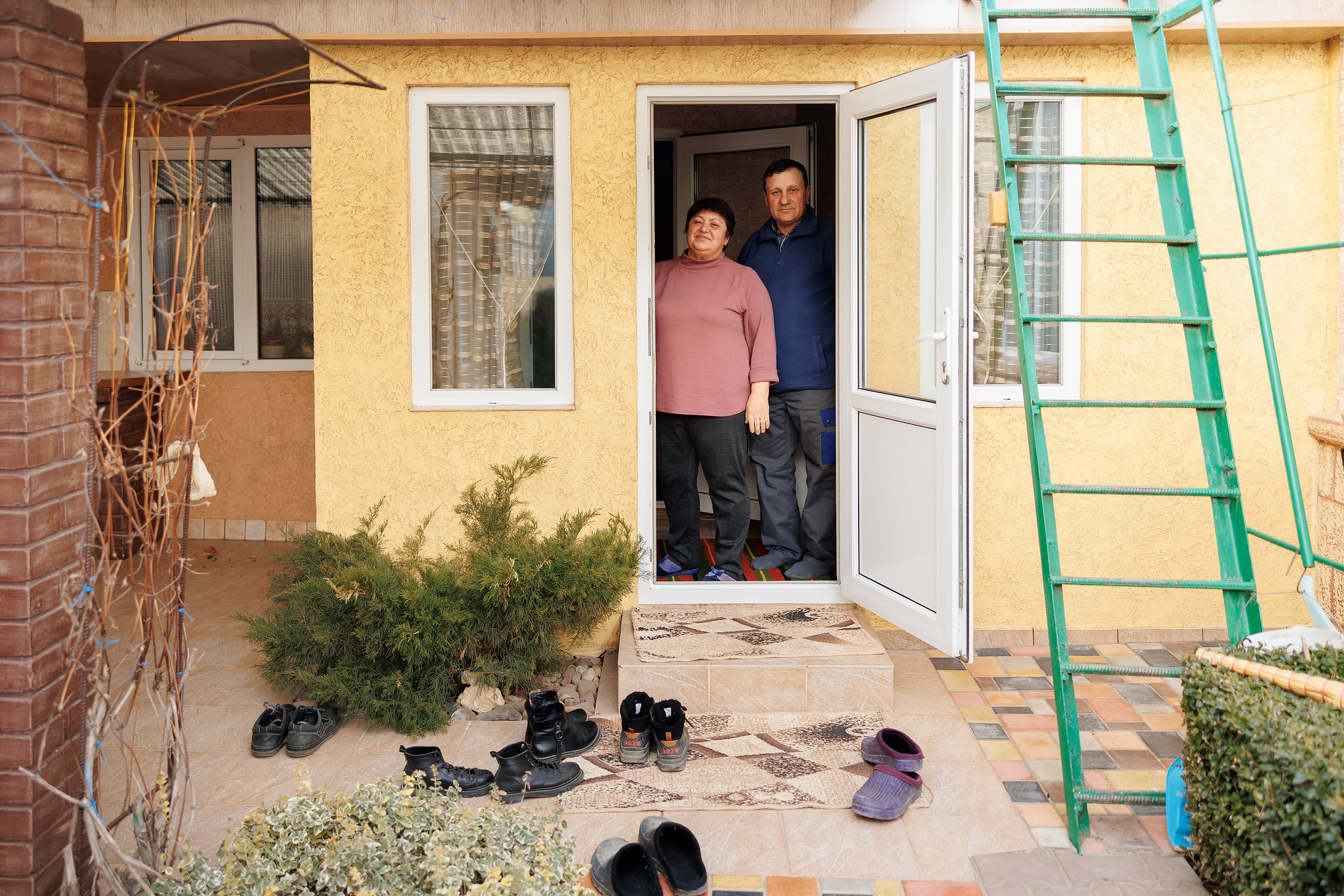How we can meet Moldova’s immediate humanitarian needs and its long-term sustainable-development priorities
May 22, 2022

The people of Moldova opened their hearts and their homes to those seeking refuge from the destruction and chaos left behind.
Since the onset of the war in Ukraine, the national and local authorities and the people of Moldova opened their hearts and their homes to those seeking refuge from the destruction and chaos left behind. Guesthouses and homes in small villages and bigger towns along the border, but also throughout the country, became a haven for rest, nourishment, and a place to decide on next steps. Public buildings, quickly repurposed by national and local authorities and NGOs, also provided much needed temporary shelters.
To support these efforts, approximately $1.27 million were allocated by UNDP and its partners – EU, Switzerland, Sweden, UK – to partially cover the immediate needs of refugees and host communities, as well as support socio-economic inclusion of people fleeing the war, by promoting employment opportunities, expanding their access to public services and ensuring social cohesion. This includes working with national and local authorities and communities in more than 75 host communities, from both banks of Nistru river, to ensure more than 21,000 Ukraine’s refugees receive the provisions, accommodation, legal, and psychological support they need.
And while Moldova’s generosity, as one refugee noted, turned neighbors into brothers, it is not without cost. Early economic forecasts by UNDP paint a potentially bleak picture: 30 percent of Moldova’s population could be living below the poverty line, and 54 percent of individuals could face high risks of falling into poverty within the next twelve months as a result of the war, the fallout of the COVID-19 pandemic and a growing energy crisis. UNDP estimates over 63% of families will be energy poor this year. As a result, many families will be forced to make unthinkable decisions around whether to heat their homes or send their children to school, access healthcare or put food on the table.
This is why it is vital that we act now, if we are to stop what is already one of Europe’s poorest countries from succumbing to the social, political, and environmental risks posed by the war in Ukraine.
To start, we should strengthen the capacities of both national and local authorities to reduce poverty, inequalities and other vulnerabilities through policies and services aimed at building economic and social resilience, as well as flexible and shock responsive social protection systems. People-centered social and economic actions, with a focus on women, the older people, youth, the unemployed and other vulnerable populations will help build communities and institutional resilience to address both current and future crises. These include poverty alleviation efforts, support small and medium enterprises, and investing in NGOs for improved service delivery.
Moldova’s population is only 2.59 million. So, for the refugees from Ukraine who choose to stay, but also for returning migrants, vulnerable populations, and host communities, it is essential to build sustainable livelihood opportunities, foster socio-economic inclusion and improve local capacities in an enabling, non-discriminatory, and inclusive environment.
These efforts will require training and education opportunities and increased investment in local development and social cohesion programmes that benefit the entire population. Such efforts will also require accelerated adoption of digital technologies, development of basic and advanced digital skills, as well as further engage private ICT sector as knowledge partner for new digital solutions in response to emerging needs of refugees and host communities.
The war poses additional environment and energy-related risks for Moldova, including over-exploitation of natural resources, insufficient infrastructure capacity for environmental-related services, and food insecurity. Supporting the country’s new green development agenda – from improving policies and coordination mechanism, to regulatory frameworks and public awareness, as well as supporting energy security and efficiency for building local farmers’ resilience to energy shocks – should all be part of this effort.
Last but not least, to address the impact posed by the war next door on various sectors, Moldova’s national and public authorities will need their capacities strengthened to be able to deliver good governance and secure rule of law, including through enhanced digital literacy and by using digital solutions as equalizer and strategic enabler for more sustainable human development.
Fighting corruption and building on the achievements of the integrity work so far, as well as addressing harmful gender social norms, including through prevention and redress of sexual and gender-based violence and improving access to justice for survivors are essential in this regard. Expanding the “safe space” model of GBV support services would serve as one of the approaches to tackle the harmful consequences of gender-based violence.
UNDP is working closely with the UN entities and other humanitarian stakeholders to meet the specific needs caused by the impact of the war in Ukraine on Moldova. Both our current work and the above recommendations are an integral component of the Regional Refugee Response Plan (RRRP), which outlines the comprehensive response and activities needed to support countries’ efforts to protect and assist refugees coming from Ukraine. In addition, UNDP and the Government State Chancellery lead the interagency inclusion & livelihoods working group which identifies the most critical needs of refugees’ integration in the host communities and ensures their livelihoods. By focusing efforts on economic, social, and environmental resilience, UNDP and its partners will be able to both support the Government of Moldova’s current humanitarian needs while at the same time help deliver on the country’s medium to long-term sustainable-development priorities.

 Locations
Locations